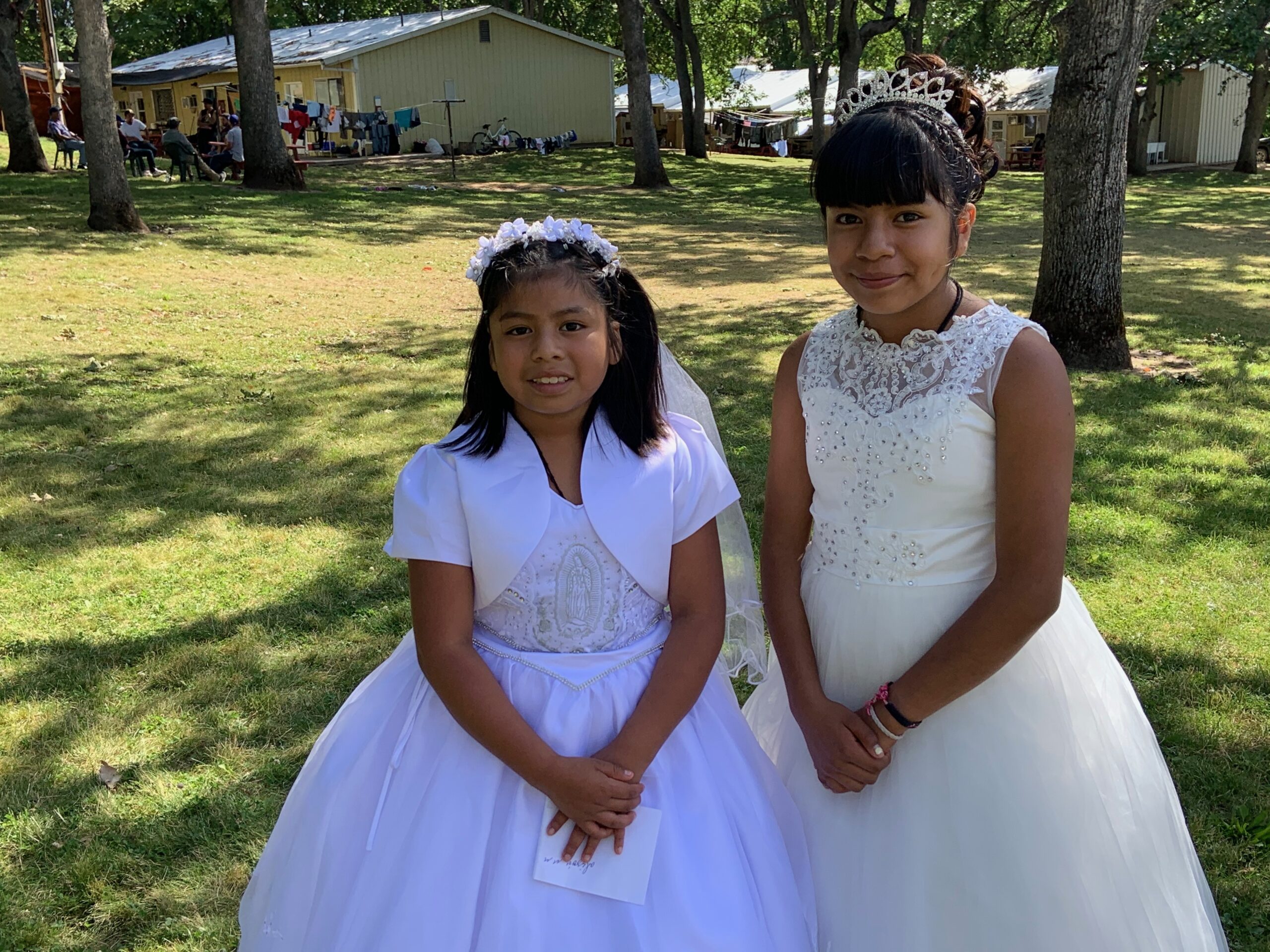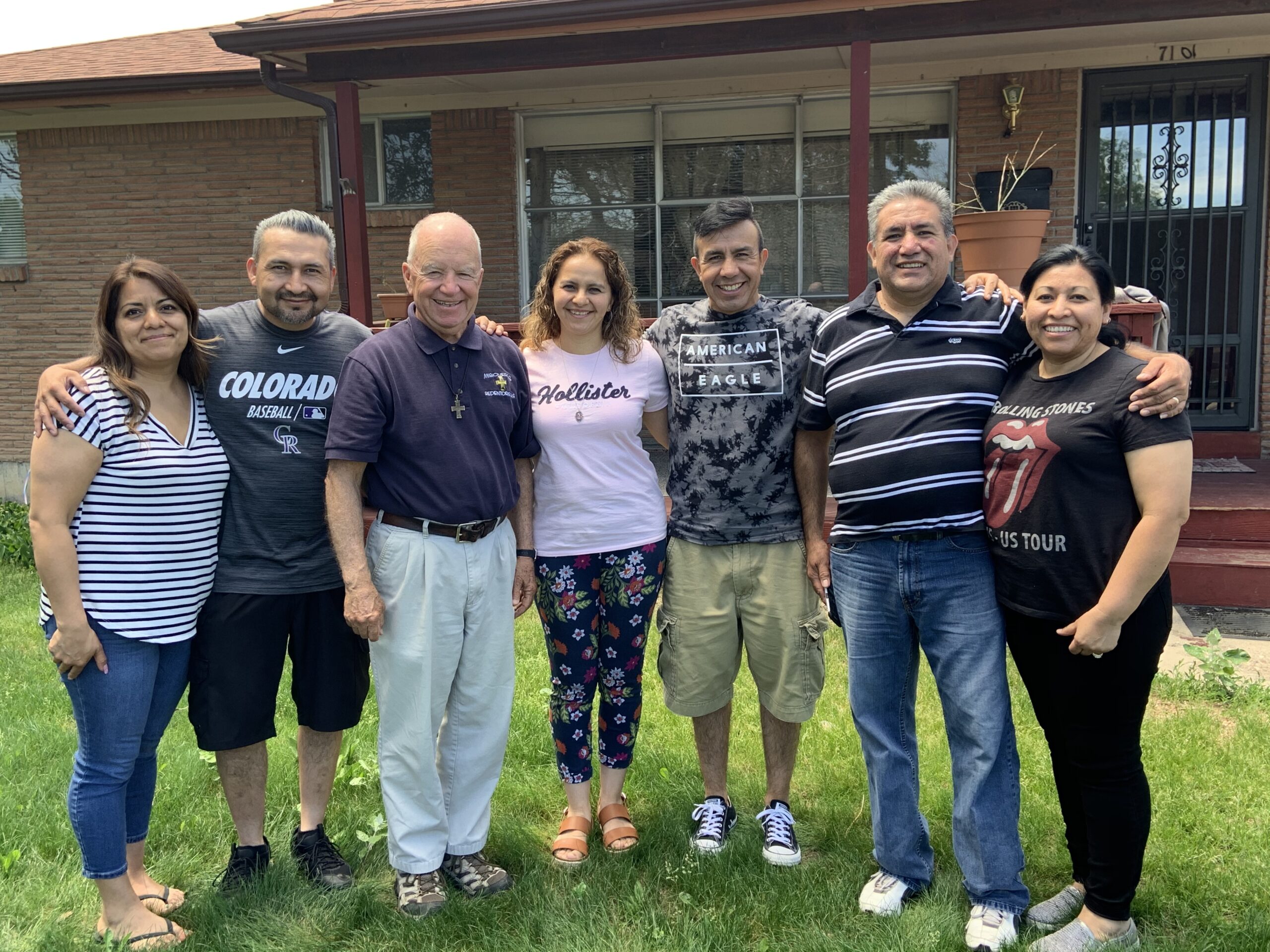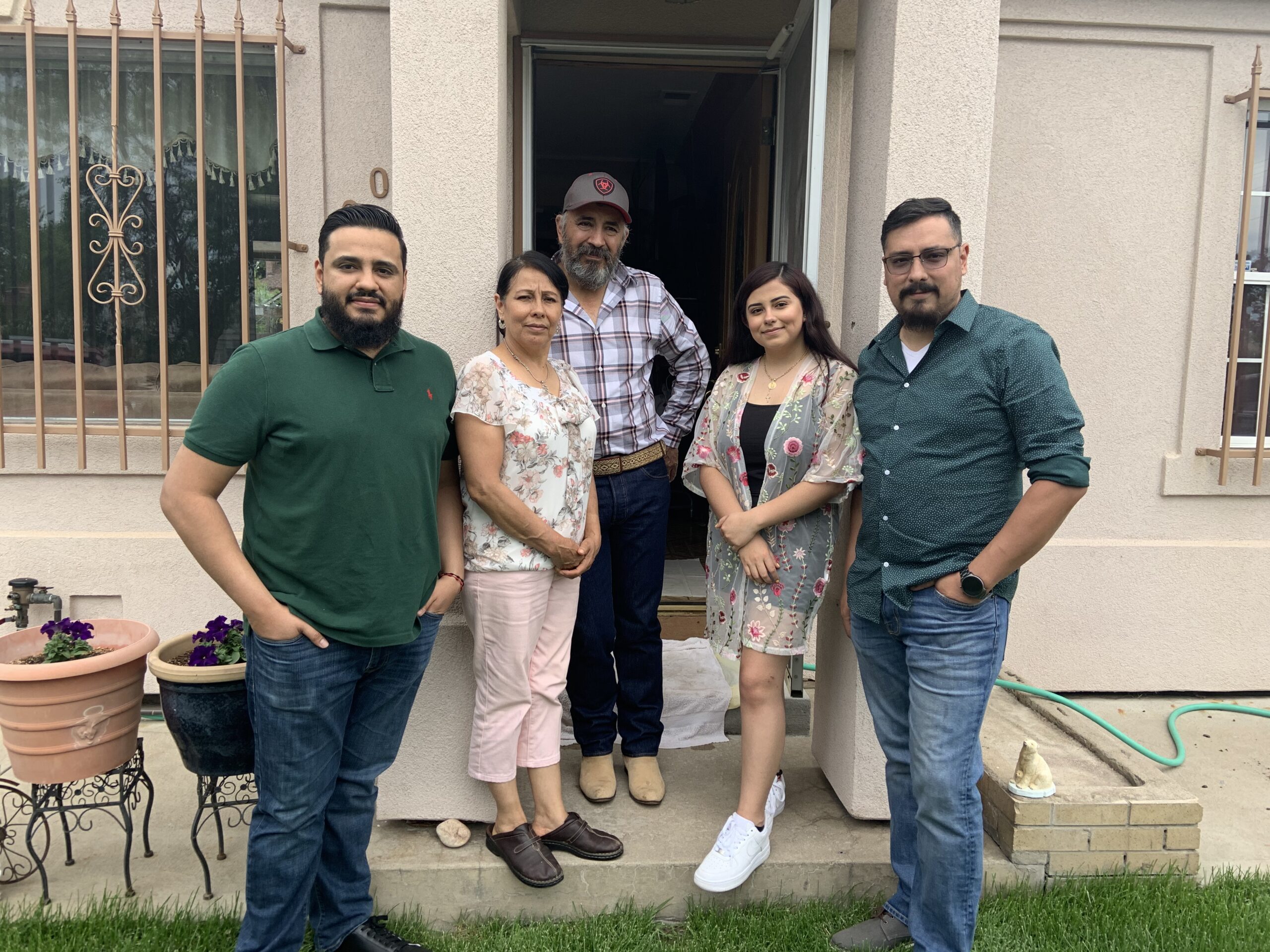7. Lent: A mother teaches her children – Una madre enseña a sus hijos
Una madre enseña a sus hijos
Una madre pidió a sus hijos la Primera Comunión. Los niños de diez, doce y catorce años, se habían bautizados. Yo conocía a la familia por haberlos visto en misas en tres comunidades en las que servimos en el Delta de Mississippi. Le informé que nuestra comunidad en Bruce capacitó a los padres para enseñarles la fe a sus hijos. María (nombre cambiado) dijo: “Padre, no he recibido mi Primera Comunión. ¿Cómo podría enseñarles?” Me sorprendió que no hubiera recibido su Primera Comunión. No es raro que la comunidad hispana no vaya a la Comunión en la Misa. Explicar porque merece un libro, no una publicación de blog. María asiste a Misa con regularidad, así que pedí visitar su casa y hablar sobre nuestro método de preparar a los niños para la Primera Comunión. No sabía dónde vivía y me dijo que vivían a 80 millas de Bruce. Hice una cita para visitar su casa y pedí ver también a su esposo.
Le pedí que me contara su historia de fe y descubrí que cuando era joven, sus padres la dejaron con sus abuelos y se mudaron a los Estados Unidos. Admiraba la fe de su abuela. Su abuela le enseñó a orar, pero nunca asistió a clases de educación religiosa. De adolescente, ir a la iglesia no formaba parte de su vida. Cuando emigró a Estados Unidos, se sentía sola e infeliz. Encontró consuelo en ir a la iglesia aunque no recibiera la comunión. Después de que comenzó a tener hijos, los pastores la veían regularmente en la Misa y bautizaban a sus hijos, sin saber de su situación sacramental. Su esposo no estaba interesado en que su matrimonio fuera bendecido en la iglesia, diciendo que el matrimonio civil es suficiente. María continuó yendo a la iglesia y ahora los niños preguntaban por qué no comulgaban.
María sabía más sobre la fe católica de lo que pensaba. Tomó el material para sus hijos y lo estudió con ellos. Estaba muy consciente de que sus hijos leían el contenido, buscaban historias del evangelio en la Biblia y aprendían las oraciones básicas. Cuando llegó el momento de que sus hijos recibieran la Eucaristía, le pregunté si ella también quería recibirla. Ella dijo que sí, pero que su esposo no bendeciría su matrimonio en la iglesia.
Los tres niños recibieron la Primera Comunión el domingo de Pentecostés. Hubo un picnic parroquial después de la misa y el obispo se detuvo para el picnic. El padre de los niños le dijo al obispo: “Este sacerdote va a celebrar nuestra boda”. Fue la primera vez que manifestó su voluntad de casarse por la Iglesia. Unos meses después se casaron. Ambos fueron confirmados y María recibió su Primera Comunión. Al año siguiente, los niños también fueron confirmados.
Aunque María no había recibido instrucción religiosa formal en su juventud, el testimonio de su abuela la convenció de su fe católica. La asistencia regular a la Misa le dio el deseo de recibir los sacramentos. Y mientras trabajaba con material catequético básico, descubrió que había aprendido la fe de su familia. Esta familia continúa activa en la fe.
(Mañana: Evangelización después de COVID)
Sigo buscando ayuda
Ayúdame a preparar un programa sacramental para niños con necesidades especiales y tiempo limitado de preparación.
Pregunta de hoy para la reflexión: ¿Quién es su heroe en la fe?
Por favor comparte conmigo tus recuerdos. Escribir a: [email protected]
A mother teaches her children
A mother asked for her children to receive their First Communion. The children ten, twelve and fourteen years old. They had all been baptized and I knew the family from having seen them at Masses in three communities that we served in the Delta of Mississippi. I informed her that our community in Bruce trained the parents to teach their children the faith. Maria (name changed) said, “Father, I have not received my First Communion. How could I teach them?” I was surprised that she had not received her First Communion. It is not uncommon that our Hispanic community does not go to Communion at Mass, and that merits a book, not a blog post. María regularly attends Mass, so I asked to visit her home and to talk over our method of preparing children for First Communion. I did not know where she lived and she told me that they lived 80 miles from Bruce. I made an appointment to visit her home and asked to see her husband also.
I asked her to tell me her story of faith, and discovered that early in life her parents left her with her grandparents and moved to the U.S. She admired the faith of her grandmother. Her grandmother taught her how to pray, but she never went to any religious education classes. As an adolescent, going to church was not part of her life. When she immigrated to the U.S. she was lonely and unhappy. She found comfort in going to church even though not receiving communion. After she began having children, pastors saw her regularly at Mass and they baptized her children, not knowing of her sacramental situation. Her husband was not interested in having their marriage blessed in the church, saying that the civil marriage is enough. She continued going to church and now the children were asking why they did not take communion.
María knew more about the Catholic faith than she realized. She took the material for her children and studied it with them. She was very conscientious that her children read the content, looked up gospel stories in the Bible and learned basic prayers. When it came time for her children to receive Eucharist, I asked if she wanted to also receive. She said yes, but that her husband would not bless their marriage in the church.
The three children received First Eucharist on Pentecost Sunday. There was a parish picnic after the Mass and the Bishop stopped by for the picnic. The father of the children said to the Bishop, “This priest is going to do our wedding.” It was the first time he indicated willingness to marry in the Church. A few months later they married. They both were confirmed and María received her First Communion. The following year the children were also confirmed.
Even though María had not received formal religious instruction as a youth, the witness of her grandmother convinced her of her Catholic faith. Regular attendance at Mass gave her a desire to receive the sacraments. And as she worked with basic catechetical material, she discovered that she had learned the faith from her family. This family continues to be active in the faith.
(Tomorrow: Evangelization after COVID)
Still looking for help
Help me prepare a sacramental program for children with special needs and limited time for preparation.
Today’s question for reflection: Who is your hero in faith?
Please share with me your memories. Write to: [email protected]
Oh Jesús, tú nos llamas: “Síganme”. Bendice, Señor, a todos los que acogen tu llamado. Puede que el camino no sea fácil, pero tenemos la confianza de que todo es posible si caminamos contigo. Que este viaje nos abra los ojos a las maravillas de tu amor por nosotros. Oramos por toda tu gente, por todos los creyentes e incrédulos, por los líderes y seguidores. Oramos por la sanación, el perdón, la compasión, la justicia y la paz. Oramos para que, al seguirte, nosotros también podamos ser pescadores de hombres. Bendícenos en nuestro viaje.
O Jesus, you call us, “Come after me.” Bless, O Lord, all who welcome your call. The path may not be easy, but we have confidence that all things are possible if we walk with you. May this journey, open our eyes to the wonders of your love for us. We pray for all your people, for all believers and unbelievers, for leaders and followers. We pray for healing, for forgiveness, for compassion, for justice, for peace. We pray that as we follow you, we too can be fishers of men. Bless us on our journey.





